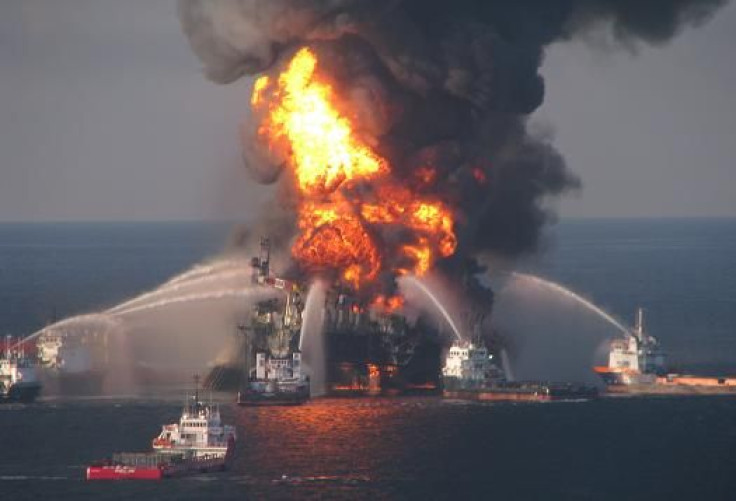BP Gains Court Permission To Pause Oil Spill Damage Payments Until Claimants Show Proof

A federal appeals court has granted petroleum giant BP PLC (NYSE: BP) permission to suspend payments to people claiming damage from the company's big 2010 Deepwater Horizon crude oil spill in the Gulf of Mexico until they can show they were actually damaged by the accident. The ruling could spare the company, which has already cost it $9.4 billion from having to make hundreds of millions in payments.
BP lawyers claim that, under terms of a class action settlement many people are getting benefits “for losses that a reasonable observer might conclude were not in any way related to the Oil Spill,” according to court documents the company filed.
That argument was rejected last month by U.S. District Judge Carl Barbier who did not review the settlement's rules government payments but said that BP knew those kinds of “false positives” were a part of such a large settlement.
On Nov. 21 the company filed an emergency motion with the appeals court claiming Barbier has “refused to enjoin payments to claimants that suffered no harm traceable to the oil spill” and that this will result in millions of dollars being “irretrievably scattered to thousands of claimants who are not proper class members.”
On Monday the Fifth Circuit U.S. Court of Appeals in New Orleans agreed with BP that the settlement payments in question should be paused while the court reviews the rules.
In light of BP’s appeal, Barbier wrote in an opinion last week that he was “disappointed” in the BP legal team and that requiring evidence would be logistically difficult. “It would be infeasible to expect or require every claimant to prove actual or factual causation,” he wrote, adding that this would require thousands of individual trials of causation, which defeats the purpose of a class settlement.
But on Monday the Fifth Circuit Court ruled in a 2 -1 decision that the Barbier must review the actual rules and halt some of the payments while that review is complete. “The district court erred by not considering the arguments on causation,” the panel said. Until the issue is addressed, the appeals court said, payments for claimants with no evidence will be stopped but benefits for those with proof will continue.
After the 2010 spill that dumped 4.9 million barrels of oil into the Gulf of Mexico for almost three months, BP has been paying billions in benefits to those whose health and business was damaged. Since the spill, BP sold $40 billion in assets and paid $25 billion in cleanup costs and damages. While BP originally estimated the class action would cost $7.8 billion, the bill has grown to $9.4 billion.
“If properly implemented by the district court, the Fifth Circuit’s order will help return the settlement to its original, intended and lawful function – the compensation of claimants who sustained actual losses that are traceable to the Deepwater Horizon accident,” BP said in a statement.
The debate surrounds a certain document, entitled “Causation Requirements for Business Economic Loss Claims," that stipulates who needs to show evidence of damages and to what extent.
There are a few types of businesses, such as tourism, seafood and retail that need not show proof of damages if they live in certain areas.
But others must prove a “downturn” during the spill and “later upturn” after the damage was cleaned. This means businesses must provide records and documentation that show a decline of 8.5 percent in total revenues between May and December 2010, and a five percent increase during the same months in 2011.
© Copyright IBTimes 2024. All rights reserved.












